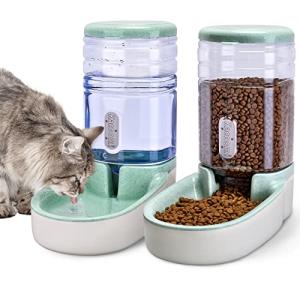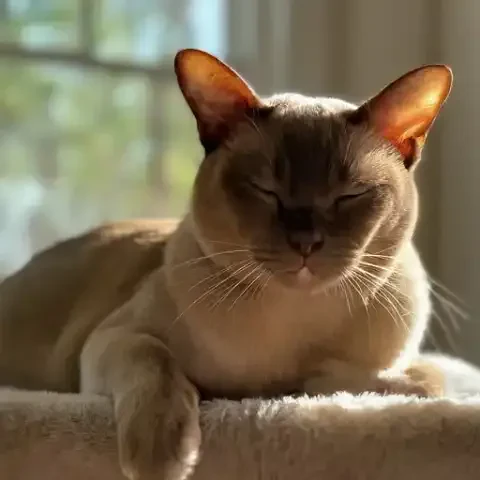Ever witnessed a cat, that epitome of regal composure and refined feline grace, suddenly devolve into a state of utter silliness, all thanks to a mere sprig of a humble-looking herb? It's a transformation that's both captivating and often downright hilarious, a spectacle that has entertained and intrigued cat lovers for generations. One moment they are a picture of serene feline elegance, the next they are rolling around in apparent ecstasy, batting at invisible foes, and generally behaving in a manner that can only be described as delightfully unhinged. But what is truly going on behind those suddenly dilated pupils, that newfound surge of energy, that often comical display of feline frenzy? Is it simply a quirky feline fancy, a learned behavior passed down through generations of mischievous cats? Or is there a genuine scientific basis behind this well-documented "catnip craze," a real physiological and neurological explanation for why this seemingly innocuous herb can send our feline friends into such fits of apparent joy?
For centuries, catnip has held a mystical allure for those who share their lives with cats. It's whispered about in hushed tones amongst cat owners, offered as a magical treat, and observed with amusement as it triggers predictable yet always entertaining feline antics. But beyond the anecdotal observations and shared experiences, the true nature of catnip’s effect remained, for a long time, shrouded in a delightful, albeit slightly perplexing, mystery. Is it just feline fancy, or is there a real scientific explanation for why cats seem to lose their minds – in the most endearing way possible – when presented with this seemingly unremarkable plant? This article aims to unravel that mystery, to delve into the scientific heart of the "catnip effect," and explore not just that cats react to catnip, but how and why this common herb has such a profound and predictable impact on feline brains and behavior. We will embark on a journey to understand the magic of catnip, to move beyond the anecdotal and embrace the scientific, demystifying the feline frenzy and revealing the captivating interplay between this unassuming herb and our beloved cat companions. Prepare to be amazed as we unlock the secrets of the catnip effect, exploring the active compound responsible, tracing its path through the feline brain, decoding the range of behavioral responses it triggers, understanding the factors that influence a cat's reaction, and uncovering the safe and effective ways to use this natural feline delight.
The Science Behind the Silliness: Deconstructing the "Catnip Effect"
To truly understand the catnip effect, we must first understand catnip itself. Botanically known as Nepeta cataria, catnip is not some exotic or rare botanical curiosity, but rather a common and unassuming herb that belongs to the vast and fragrant mint family, Lamiaceae. This family is a veritable powerhouse of aromatic plants, encompassing familiar culinary and medicinal herbs like mint, basil, oregano, rosemary, and lavender, a testament to the shared chemical lineages and fragrant characteristics within this botanical group. Catnip, in its natural form, is a perennial herb, meaning it lives for more than two years, often returning year after year with minimal intervention. It's a relatively unassuming plant in appearance, often growing to a height of one to three feet, characterized by its distinctive scent – a slightly minty, slightly citrusy aroma that hints at its family ties, yet possesses a unique quality that draws felines in droves. Its leaves are typically heart-shaped, slightly fuzzy, and a grayish-green hue, while its flowers, when it blooms, are small and delicate, often white or pale purple, clustered in attractive whorls.
Originally native to Europe and Asia, catnip has proven to be remarkably adaptable and resilient, now naturalized in many parts of the world, including North America, thriving in a variety of climates and conditions, demonstrating its hardiness and widespread presence. Interestingly, while catnip's most famous application is as a feline enticement, it has a history of traditional uses beyond the cat world, with humans historically utilizing catnip for its mild medicinal properties. Traditional herbal medicine has long recognized catnip for its mild sedative qualities, often using it in teas to promote relaxation and aid sleep, a testament to its gentle influence on the nervous system. It has also been used traditionally as a digestive aid, believed to soothe stomach upset and alleviate mild gastrointestinal discomfort, showcasing a broader range of traditional applications beyond its feline fame.
However, the true key to understanding the "catnip effect" lies in unveiling its magic ingredient: Nepetalactone. This single compound, present within the leaves and stems of the catnip plant, is the primary active component responsible for triggering the well-documented feline responses. Nepetalactone is classified as a volatile iridoid, a fascinating category of organic compound that falls under the broader umbrella of terpenes. Terpenes are naturally occurring organic compounds found in a wide variety of plants and are often responsible for their distinctive scents and flavors, contributing to the aromatic complexity of the plant kingdom. Nepetalactone, as a volatile compound, is readily released into the air when the catnip plant is bruised, crushed, or even simply dried, a testament to its easily diffusible nature and its ability to travel and interact with the environment. It is the release of this volatile scent, this invisible chemical signal, that initiates the chain of events leading to the characteristic feline behaviors associated with catnip.
The "catnip effect" is fundamentally a sensory experience, triggered by the cat's remarkable sense of smell. Cats react to catnip primarily through their olfactory system, inhaling the scent of Nepetalactone molecules as they waft through the air and enter their nasal passages. Once inhaled, these Nepetalactone molecules embark on a journey to a specialized olfactory organ unique to cats (and many other animals): the vomeronasal organ, also known as Jacobson's organ. This remarkable organ is a specialized sensory apparatus located within the nasal cavity, distinct from the main olfactory epithelium responsible for ordinary smell. The vomeronasal organ is particularly sensitive to pheromones and certain scents, playing a crucial role in social communication, scent marking, and detecting subtle chemical signals in the environment, highlighting its specialized function in chemical perception beyond basic odor detection. Nepetalactone, upon entering the nasal passages, is drawn towards the vomeronasal organ, where the real magic begins to unfold. Within this specialized organ, Nepetalactone molecules bind to specific protein receptors located on sensory neurons. These receptors are essentially specialized docking stations, designed to recognize and interact with specific chemical compounds, in this case, Nepetalactone. This binding is not merely a passive interaction; it triggers a cascade of neurological events, initiating the "catnip effect."
Once Nepetalactone binds to these olfactory receptors, it stimulates the sensory neurons within the vomeronasal organ. These neurons then act as messengers, firing off electrical signals that relay the information about the presence of Nepetalactone directly to the brain. This neurological pathway is direct and efficient, ensuring that the cat's brain quickly receives and processes the sensory information transmitted from the nose. The signals originating from the vomeronasal organ are specifically directed to several key brain regions that are known to be involved in emotions, scent processing, and behavioral responses. The olfactory bulb, the brain region primarily responsible for processing scents and olfactory information, is naturally activated, interpreting the Nepetalactone scent as a significant sensory input. Crucially, the signals also reach the amygdala, the brain's emotional center, often associated with processing emotions like fear and anxiety, but also pleasure and reward. In the case of catnip, the amygdala is likely involved in processing the pleasurable and euphoric aspects of the catnip experience, contributing to the positive emotional response. Furthermore, the hypothalamus, a critical brain region responsible for regulating a wide range of bodily functions including emotions, hunger, body temperature, and crucially, sexual behavior, is also significantly impacted by the catnip signal. It is within the hypothalamus that many of the hormonal and behavioral responses to catnip are likely orchestrated, contributing to the complex and multifaceted "catnip effect."
A leading scientific hypothesis attempting to explain the intense and often pleasurable feline response to catnip proposes that Nepetalactone, in its chemical structure and its interaction with the feline brain, mimics feline pheromones. Pheromones are chemical signals that animals, including cats, use to communicate with each other, often conveying information about social status, territorial boundaries, and reproductive status. It is theorized that Nepetalactone, through its structural similarity to certain feline pheromones, particularly those found in cat urine and scent glands, may essentially "trick" the cat brain into responding as if it has encountered these important chemical signals. Specifically, it is suggested that Nepetalactone may mimic pheromones that trigger sexual responses, playful behavior, or general feelings of well-being and contentment in cats. This pheromone mimicry could explain why catnip elicits such a wide range of behaviors, from rolling and rubbing (scent marking behaviors associated with pheromone release) to playful hyperactivity and vocalizations (associated with courtship and social interaction), and even periods of mellow relaxation and contentment. It is important to emphasize that while pheromone mimicry is a leading and compelling theory, the exact mechanisms behind the "catnip effect" are still being actively researched and investigated. The precise neurological pathways and the specific brain regions involved in mediating the diverse range of catnip-induced behaviors are complex and not yet fully elucidated. However, the pheromone mimicry hypothesis provides a strong and scientifically grounded framework for understanding why catnip elicits such an intense and seemingly pleasurable response in many cats, offering a glimpse into the chemical conversation between this remarkable herb and the intricate workings of the feline brain.
From Euphoria to Zen: Decoding the Diverse Behavioral Responses to Catnip
The "catnip effect" is not a monolithic reaction; instead, it manifests as a diverse spectrum of behavioral responses, ranging from euphoric frenzy to tranquil zen-like calm, highlighting the individualistic nature of feline reactions to this intriguing herb. While the "classic" catnip reaction often conjures images of a cat in a state of euphoric frenzy, it's crucial to understand that this is just one facet of a much broader range of possible responses. The "classic" catnip reaction, the one most frequently depicted and perhaps most readily recognized, is characterized by a surge of euphoric energy and seemingly intoxicated behavior. Cats exhibiting this response often launch into a flurry of rolling and rubbing, contorting their bodies in seemingly ecstatic displays, rubbing their faces and bodies vigorously on the catnip itself, or on any surface that has come into contact with the herb. This rolling and rubbing behavior is often interpreted as a display of pleasure and intense olfactory investigation, but it also likely serves a scent-marking function, with the cat spreading their own scent, intermingling it with the aroma of the catnip, essentially claiming it as their own. Head shaking and chin and cheek rubbing are also common components of this euphoric display, further emphasizing the olfactory and scent-marking aspects of the response. Vocalizations often accompany this frenzied behavior, with cats meowing, purring intensely, and sometimes even emitting playful growls, adding an auditory dimension to their catnip-induced antics. Hyperactivity and playfulness often escalate dramatically during this phase, with cats running around with sudden bursts of energy, batting at toys with newfound vigor, and chasing imaginary prey with comical intensity. The overall picture is often one of a cat behaving in a seemingly "intoxicated" manner, their usual composure replaced by a display of uninhibited feline silliness, a spectacle that is both amusing and undeniably captivating to witness.
However, it is vital to recognize that not all cats react to catnip with hyperactive frenzy. A significant portion of cats, and even the same cat at different times, may exhibit a more relaxed and mellow response, showcasing the diverse nature of the "catnip effect." These cats, instead of becoming hyperactive, may exhibit a more subdued and tranquil reaction, entering a state of apparent relaxation and calm. Behaviors associated with this mellow response include staring into space with a glazed expression, seemingly zoning out and entering a state of feline contemplation, or even drooling slightly, indicating a state of deep relaxation and perhaps altered sensory perception. Cats exhibiting this mellow reaction may become unusually docile and cuddly, actively seeking out human contact, purring contentedly when petted, and generally displaying a heightened level of affectionate behavior, a stark contrast to the energetic frenzy of other catnip responders. It is theorized that this more mellow response might be related to anxiety reduction, with catnip perhaps activating neurological pathways associated with calming and relaxation in some individuals. Alternatively, it’s possible that different neurological pathways are being activated in these cats, leading to a distinctly different behavioral outcome. It is crucial to emphasize that both the hyperactive "euphoric" response and the mellow "relaxed" response are considered normal and entirely within the spectrum of the "catnip effect." Neither response is inherently "better" or more "typical"; they simply represent different facets of the diverse ways in which cats can react to this intriguing herb. The "catnip effect" is perhaps best understood as a "kitty cocktail" of potential responses, a variable and individualized reaction tailored to each cat's unique biology, genetics, and individual personality. No two cats react exactly the same way to catnip, and even a single cat may exhibit slightly different reactions at different times, or when presented with different forms of catnip (fresh versus dried, for example). Genetics plays a significant role in determining whether a cat responds to catnip at all, and also likely influences the type of response a cat will exhibit. Age, sex, and individual personality traits also contribute to the variability of the "catnip effect," creating a complex interplay of factors that shape each cat's unique and often unpredictable reaction.
Finally, it's important to acknowledge the "non-responder" cat – those felines who seem entirely immune to the allure of catnip, showing absolutely no reaction whatsoever. It is estimated that a significant portion of the cat population, somewhere between 50% and 75%, is susceptible to the effects of catnip. This means that a substantial minority of cats, perhaps as much as half, will show no discernible response to catnip, no matter how potent the herb or how enticingly it is presented. The ability to respond to catnip is thought to be primarily hereditary, a genetically determined predisposition. Cats are essentially born with or without the necessary receptors in their vomeronasal organ to react to Nepetalactone. If a cat does not inherit the specific genes that code for these receptors, they will simply not be able to perceive or react to catnip, regardless of its quality or quantity. Kittens under a certain age, typically younger than 6-8 weeks old (and sometimes even up to 12 weeks), typically do not react to catnip, even if they will become catnip responders later in life. This is because their vomeronasal organ and the associated pheromone response systems are still developing and maturing during early kittenhood. Responsiveness usually develops around puberty or sexual maturity, coinciding with the full development of these sensory and neurological pathways. Older cats may also exhibit a slightly diminished or less intense response to catnip compared to their younger adult selves. While many cats retain their sensitivity to catnip throughout their lives, some older felines may show a reduced enthusiasm, perhaps due to age-related changes in their sensory systems or neurological responses. It is crucial to reassure readers that non-responsiveness to catnip is perfectly normal and does not indicate any health issue, lack of feline enjoyment in other areas of life, or any deficiency in their feline-ness. Non-responder cats simply lack the genetic predisposition to react to Nepetalactone, and they are perfectly capable of experiencing joy, playfulness, and contentment in other ways, finding their feline fulfillment through different avenues of sensory and behavioral stimulation.
Factors Influencing the Feline Frenzy: Why Reactions Vary
The fascinating variability in feline reactions to catnip is not random chance; it is influenced by a complex interplay of factors, including genetics, age, individual personality, and even the form and freshness of the catnip itself. Understanding these factors helps to demystify the "catnip effect" and appreciate the nuanced nature of feline responses. Genetics plays a paramount role in determining whether a cat will respond to catnip at all, and also significantly influences the type and intensity of their reaction. As previously discussed, the ability to respond to catnip is largely a hereditary trait, dictated by a cat's genetic makeup. Sensitivity to Nepetalactone is an inherited characteristic, meaning cats are essentially born with or without the necessary protein receptors in their vomeronasal organ to bind with and react to this compound. Breeding programs sometimes attempt to selectively breed for catnip responsiveness, favoring cats who exhibit strong reactions in hopes of producing more catnip-sensitive offspring. However, the genetics of catnip response are likely complex and multigenic, making it not always entirely predictable through selective breeding alone. Even within a single litter of kittens, some individuals may inherit the genes for catnip responsiveness, while others may not, due to the natural genetic variation within a feline family, highlighting the genetic lottery that determines catnip sensitivity.
Age and maturity are also significant factors shaping a cat's response to catnip. As mentioned earlier, kittens under a certain age, typically younger than 6-8 weeks (and sometimes up to 12 weeks), generally do not exhibit any reaction to catnip. This lack of responsiveness in young kittens is primarily attributed to the immaturity of their vomeronasal organ and the associated pheromone response systems. These specialized sensory and neurological pathways are still developing in early kittenhood, and they are not yet fully functional and receptive to the effects of Nepetalactone until later in their development. Responsiveness to catnip typically emerges around puberty or sexual maturity, usually between six and twelve months of age, coinciding with the full maturation of these sensory and hormonal systems. Older cats, while often retaining their sensitivity to catnip throughout their lives, may sometimes exhibit a slightly diminished or less intense response compared to their younger adult selves. While many older cats continue to enjoy and react to catnip with enthusiasm, age-related changes in their sensory systems, neurological pathways, or overall metabolism may contribute to a subtle reduction in the intensity of their response in some individuals, though many remain catnip enthusiasts well into their senior years.
Individual cat personality and temperament are also crucial factors that shape the type of reaction a cat will exhibit, even among those who are genetically predisposed to respond to catnip. Even within a group of catnip-responsive cats, the intensity and behavioral manifestation of their response can vary considerably based on their individual personalities and inherent temperaments. Some cats, by nature, are more playful and energetic, exhibiting a more overtly hyperactive and frenzied catnip response, channeling the herb's effects into bursts of physical activity and comical antics. Shyer or more anxious cats, on the other hand, might exhibit a calmer, more mellowing reaction to catnip, utilizing its effects to induce relaxation and reduce anxiety, seeking comfort and tranquility rather than playful exuberance. Individual differences in sensitivity to scents, neurological pathways, hormonal responses, and even simply individual feline preferences and quirks can all contribute to the diverse and individualized spectrum of catnip reactions, highlighting the unique personality of each feline responder. Finally, even the form and freshness of the catnip itself can influence the potency of its effects and the intensity of a cat's response. The form in which catnip is presented – whether fresh, dried, as a spray or extract, or infused in toys – can impact the concentration and delivery of Nepetalactone, influencing the feline reaction. Fresh catnip, particularly when freshly bruised or crushed, generally has a stronger and more concentrated scent, potentially eliciting a more intense and immediate reaction. Dried catnip, while convenient and shelf-stable, can gradually lose potency over time as Nepetalactone degrades and volatilizes, especially if not stored properly. Proper storage in an airtight container, kept in a cool, dark place, can help to preserve the potency of dried catnip for a longer period. Catnip sprays and extracts can vary significantly in concentration and effectiveness, depending on the quality of the product and the extraction methods used. Some sprays may contain highly concentrated Nepetalactone, while others may be diluted or less potent, leading to variable results. Toys infused with catnip can be an effective and convenient way to provide catnip enrichment, but they too can lose potency over time as the Nepetalactone gradually dissipates from the toy, requiring occasional "refreshing" or replacement to maintain their feline appeal.
Safe and Sensible Catnip Usage: Dosage, Frequency, and Quality
The good news for cat lovers is that catnip, despite its seemingly potent effects on feline behavior, is generally considered to be a safe, non-toxic, and non-addictive substance for cats. This reassuring safety profile makes it a popular and widely used enrichment tool for feline companions. Catnip is indeed generally recognized as safe and non-toxic for cats, with a long history of use and minimal reported adverse effects, a comforting reassurance for owners concerned about the well-being of their feline friends. It is definitively not addictive, and cats cannot overdose on catnip, even if they were to ingest a large quantity of the herb. Unlike some substances that can trigger dependence or harmful physiological effects, catnip's effects are temporary and self-limiting, with cats naturally losing interest in the herb after a short period of exposure, preventing any risk of addiction or overdose. While generally safe, occasional mild side effects are possible, but these are typically rare and transient. In some cases, particularly if a cat ingests a large quantity of fresh catnip plant material, they may experience mild stomach upset, characterized by slight nausea or mild diarrhea. However, these mild gastrointestinal disturbances are usually self-resolving and temporary, and are not considered to be a serious health concern. It is important to stress that catnip is, by and large, a natural and generally benign substance for feline use, a safe and enjoyable enrichment tool that poses minimal risk to feline health when used responsibly.
When it comes to using catnip, less is often more. Cats are remarkably sensitive to Nepetalactone, and a small amount of catnip is typically sufficient to elicit a noticeable behavioral response. It is generally advisable to start with small amounts of catnip and observe your cat's reaction, gauging their individual sensitivity and adjusting the dosage accordingly. A pinch of dried catnip, a small fresh sprig, or a single catnip toy is usually ample to initiate the "catnip effect" in a responsive cat. Cats are exquisitely sensitive to Nepetalactone, and even a small amount can trigger a full-blown behavioral response in susceptible individuals, highlighting the potency of this natural compound. It is generally recommended to offer catnip in moderation, rather than making it constantly available to your cat. Frequent and continuous exposure to catnip can lead to desensitization or tolerance, reducing its effectiveness over time. A good guideline is to offer catnip a few times a week, or even less frequently, to maintain its novelty and ensure it remains an effective enrichment tool. This intermittent approach helps to preserve the "magic" of catnip, keeping it a special and exciting treat rather than a commonplace and therefore less stimulating presence in your cat's environment.
To avoid overuse and prevent tolerance, it is beneficial to practice catnip cycling. This involves offering catnip to your cat for a relatively short period of time, typically 10-15 minutes, and then removing the catnip and making it unavailable for a few hours or even a few days. This cyclical approach allows your cat to experience the full effects of catnip and then allows their sensitivity to return to baseline, preventing desensitization and maintaining its long-term effectiveness. Storing catnip properly is also essential for maintaining its potency and effectiveness. Dried catnip should be stored in an airtight container, kept in a cool, dark place, to minimize degradation of Nepetalactone and preserve its aromatic potency. Proper storage also helps to reduce scent lingering in the environment, which can contribute to desensitization if cats are constantly exposed to the aroma, even in low concentrations. When choosing catnip products, it is always advisable to purchase catnip from reputable sources to ensure quality and potency. Good quality catnip will typically have a strong aroma, readily releasing its characteristic scent when the package is opened, and exhibit a greenish-brown color, indicating proper drying and processing. Fresh catnip, if you are growing your own or purchasing fresh sprigs, should be vibrant green, with healthy leaves and stems, and possess a strong minty scent, a sign of its freshness and Nepetalactone content. Considering organic catnip is also a wise choice, particularly if you are concerned about potential pesticide residues or want to ensure a natural and pure product for your cat. Be aware of cheap or excessively discounted catnip products, as these may be of lower quality, less potent, or even mixed with fillers or less desirable plant material, potentially diminishing their effectiveness and feline appeal.
Practical Applications of Catnip: Beyond Just Entertainment
While often viewed primarily as a source of feline amusement, catnip has a range of practical applications beyond simple entertainment, offering valuable tools for enrichment, training, stress reduction, and even redirecting unwanted scratching behaviors. Catnip's most prevalent and widely recognized use is as a fun and engaging enrichment tool for cats. Its ability to induce playfulness, excitement, and even relaxation makes it an excellent way to stimulate feline activity, provide mental and physical enrichment, and simply add a dose of fun and silliness to a cat's day. Catnip can be easily incorporated into playtime to make interactive sessions more exciting and stimulating. Sprinkling dried catnip on cat toys, scratching posts, or designated play areas can instantly elevate the level of feline engagement, encouraging active play, exploration, and heightened sensory interest. Catnip toys are a particularly convenient and popular way to provide catnip enrichment, offering a pre-packaged and mess-free way to deliver the herb's effects. Catnip-infused toys come in a vast array of shapes, sizes, and materials, providing cats with engaging play objects that also deliver a dose of Nepetalactone with each pounce, bat, and cuddle. Incorporating catnip into interactive play sessions, where you actively engage with your cat using catnip-enhanced toys or by sprinkling catnip in play areas, can further enhance feline engagement, strengthen the human-animal bond, and create shared moments of fun and amusement.
Beyond play, catnip can also be a valuable tool for training and positive reinforcement. Its highly appealing nature to many cats makes it an effective reward for desired behaviors, offering a naturally motivating and enjoyable incentive in training contexts. Catnip can be used as a positive reinforcement reward for encouraging specific desired behaviors, such as scratching post use, entering a cat carrier willingly, accepting grooming calmly, or learning simple tricks. Presenting catnip as a reward immediately after a cat performs the desired behavior helps to create a positive association, reinforcing the action and making it more likely to be repeated in the future. The scent of catnip can also be used to lure cats to desired locations or objects during training sessions. Sprinkling a small amount of catnip near a scratching post, for example, can entice a cat to investigate and explore the post, encouraging them to interact with it in a positive way. It is crucial to emphasize that catnip should be used in moderation and in conjunction with other positive reinforcement methods, such as verbal praise, gentle petting, and small food treats. Catnip is most effective when used strategically and as part of a broader positive reinforcement approach to feline training and behavior modification. Catnip also holds potential as a tool for stress and anxiety reduction in some cats, particularly those who exhibit a mellowing and relaxing response to the herb. While not a universal anxiety treatment, catnip can be a helpful complementary tool for managing mild stress and promoting calmness in certain situations.
Catnip can be used to help cats adjust to new environments, such as a new home, a boarding facility, or a veterinary clinic waiting room. Sprinkling a small amount of catnip in a new environment, or offering a catnip toy, can help to create a more positive and less stressful first impression, encouraging exploration and reducing anxiety associated with unfamiliar surroundings. It can also be used to help reduce stress during potentially anxiety-inducing events, such as vet visits. Lining a cat carrier with a catnip-infused blanket or toy can help to make the carrier a more appealing and less threatening space, reducing stress associated with travel and veterinary appointments. Catnip may also offer some degree of calming relief for cats who experience anxiety during stressful events like thunderstorms or fireworks. Offering catnip in a safe and secure space during these events may help to distract and soothe some cats, providing a natural and gentle coping mechanism for mild anxiety. However, it is crucial to exercise caution and observe individual cat’s reactions to catnip in stressful situations beforehand. For some cats, catnip can paradoxically increase hyperactivity and excitement, which may be counterproductive in a stressful situation. It is therefore essential to know your cat's individual response to catnip and use it judiciously in anxiety-provoking contexts. It is also vital to emphasize that catnip is not a substitute for veterinary care for more serious anxiety disorders. If your cat exhibits significant or persistent anxiety, consulting with a veterinarian is crucial to rule out underlying medical conditions and explore appropriate and effective treatment options, which may include behavioral therapy, environmental modifications, or prescribed medications. Catnip can, however, be a valuable and natural complementary tool for mild stress relief in some cats, offering a gentle and non-pharmaceutical approach to promoting calmness in specific situations. Finally, catnip can be a valuable tool for encouraging scratching post use and redirecting destructive scratching behaviors away from furniture and other inappropriate surfaces. Cats have a natural instinct to scratch, and providing them with appropriate scratching outlets is essential for feline well-being and household harmony. Sprinkling catnip directly on or near scratching posts, particularly new ones or those that are not yet being used consistently, can make them more appealing and enticing to cats, encouraging exploration and scratching behavior. Combining catnip with positive reinforcement techniques, such as verbal praise, gentle petting, and small food treats, when cats are observed using scratching posts, can further reinforce this desired behavior, making scratching posts a more attractive and rewarding option than furniture.
Beyond Catnip: Exploring Feline-Friendly Alternatives
While catnip is undoubtedly the most famous and widely used feline attractant, it is not the only herb that can elicit fascinating behavioral responses in cats. For cats who are non-responders to catnip, or for owners seeking alternative enrichment options, several other feline-friendly plants offer intriguing possibilities, including silver vine, valerian root, and honeysuckle wood. Silver vine (Actinidia polygama) is another plant native to mountainous regions of Asia that is increasingly gaining popularity as a cat attractant, often described as a more potent "cousin" to catnip. Silver vine contains not just one, but multiple active compounds that cats react to, including Actinidine and dihydroactinidiolide. This complex chemical profile may explain why silver vine is often effective for cats who do not respond to catnip, with studies suggesting that a significantly higher percentage of cats respond to silver vine compared to catnip alone. Reactions to silver vine are often described as more intense or varied than typical catnip reactions, with some cats exhibiting a more pronounced euphoric frenzy, while others may display a more intensely playful or even more profoundly relaxed response. Silver vine is becoming increasingly available in various forms, including dried leaves and stems, powdered forms, and infused in cat toys, offering cat owners a potent and effective alternative to catnip for enrichment and play.
Valerian root (Valeriana officinalis) is another plant that has long been recognized for its effects on cats, although its action is often described as more sedative than stimulating. Valerian root contains a different active compound compared to catnip, primarily Valerenic acid, which is believed to have a more direct sedative effect on the feline nervous system, contrasting with Nepetalactone's more olfactory and pheromone-mimicking action. The scent of valerian root is often described as more pungent, musky, or even slightly earthy compared to catnip's minty aroma. Valerian root reactions in cats are typically more mellowing and calming than catnip reactions, often inducing drowsiness, relaxation, and a generally subdued demeanor. While some cats may exhibit mild playfulness or rubbing behaviors, the overall effect is usually more tranquilizing and less energetic than the typical catnip response. It is important to note that some cats may not be attracted to or even dislike the smell of valerian root, and some cats may exhibit no discernible reaction whatsoever, highlighting the individualistic nature of feline responses to different plant-based attractants. Honeysuckle wood (Lonicera tatarica or Lonicera maackii wood) is a less widely known but potentially intriguing option as a feline attractant, particularly in the form of chew sticks or wood shavings. Honeysuckle wood contains Nepetalactol, a compound that is structurally similar to Nepetalactone in catnip, suggesting a shared mechanism of action, but with potentially different effects or potency. Reactions to honeysuckle wood in cats are less extensively researched compared to catnip and silver vine, but anecdotal evidence suggests it may elicit playful or calming responses in some individuals. It is often sold as chew sticks for cats, suggesting it may also appeal to their natural chewing instincts, offering a multi-sensory enrichment experience.
For cat owners whose feline companions are non-responders to catnip, exploring these feline-friendly alternatives can be a worthwhile endeavor. Experimenting with different options – offering silver vine toys, trying valerian root pouches, or introducing honeysuckle wood chew sticks – can help to identify whether any of these alternative plants elicit a positive response in non-catnip-reactive cats. It is important to remember that even if a cat does not react to catnip or any of these herbal alternatives, there are countless other ways to enrich their lives, provide mental and physical stimulation, and deepen the human-animal bond. Play, interactive games, environmental enrichment, vertical spaces, scratching posts, and simply spending quality time with your cat are all valuable and essential components of feline well-being, regardless of their responsiveness to specific plant-based attractants.
Conclusion: The Enduring Fascination of the Catnip Effect - A Natural Key to Feline Joy
In conclusion, the "catnip effect," far from being mere feline silliness, is a captivating glimpse into the intricate workings of the cat brain and the fascinating power of natural compounds to influence behavior. From its active ingredient, Nepetalactone, to its complex interaction with feline olfactory receptors and brain regions, the science behind catnip reveals a remarkable interplay of chemistry and feline biology. The range of behavioral responses it triggers, from euphoric frenzy to tranquil calm, underscores the individualistic nature of feline personalities and the nuanced ways in which they experience the world. Its generally safe and non-toxic nature makes it a valuable and accessible tool for enriching feline lives, and its practical applications extend far beyond simple amusement, offering benefits for training, stress reduction, and promoting overall feline well-being. The catnip effect is a testament to the enduring wonder of the natural world and the captivating mysteries that continue to unfold within the animal kingdom.
More than just a fun treat or a source of amusement, catnip offers a safe and natural way to enrich our cats' lives, strengthen our bonds with them, and appreciate the unique and wonderful world of feline perception. It is a window into the feline brain, a tool for enrichment, and ultimately, a source of pure, unadulterated feline joy, delighting both cats and their human companions in equal measure. So, the next time you offer your cat a pinch of catnip and witness their delightful transformation, remember that you are not just observing a funny feline frenzy, but a fascinating dance between nature and the neurological wonders of our beloved cat companions. Embrace the catnip effect, and continue to marvel at the magic and mystery of the feline world, cherishing the unique bond we share with these enigmatic and endlessly captivating creatures.







